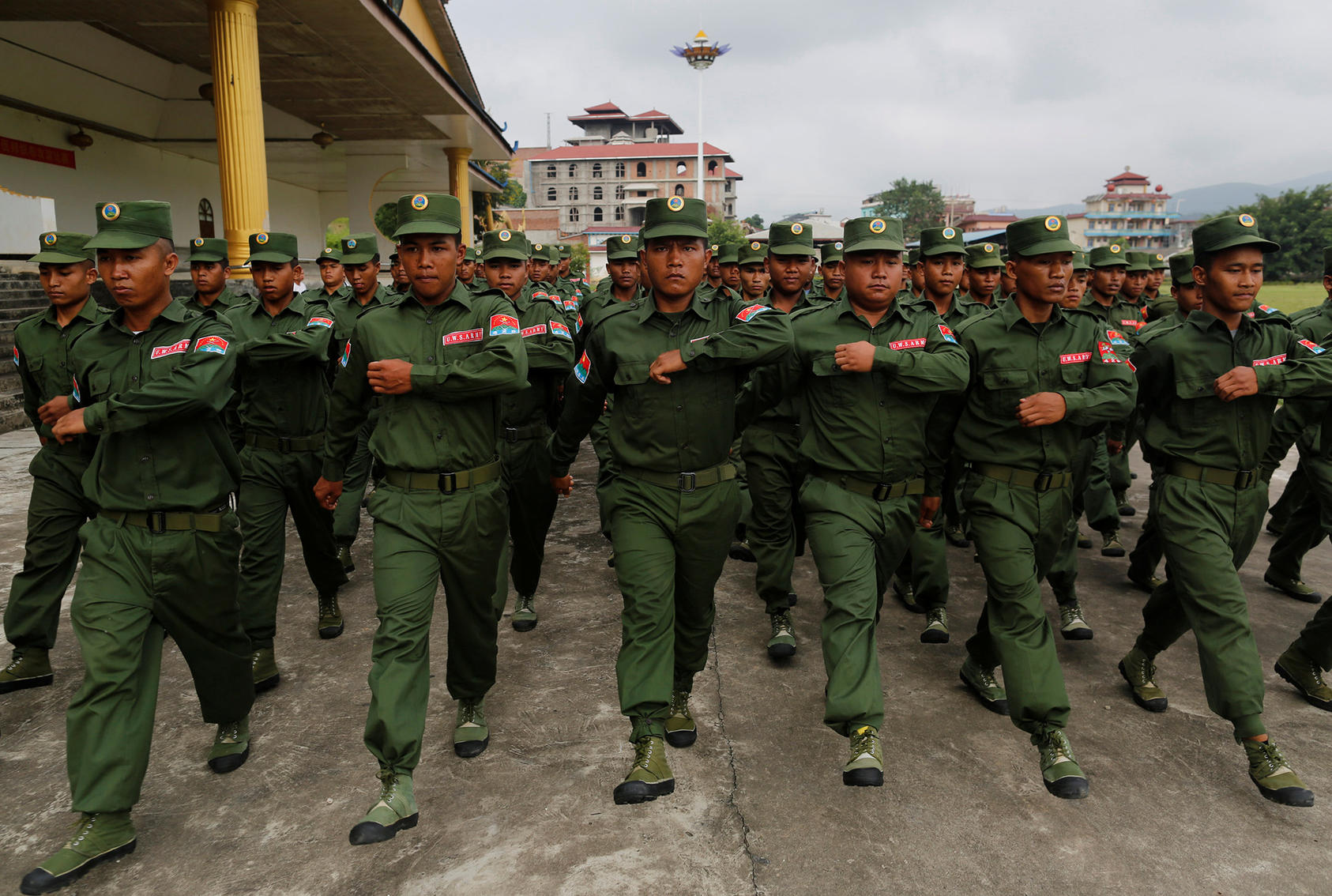The United Wa State Army and Burma’s Peace Process
The United Wa State Army, a force of some twenty-thousand fighters, is the largest of Burma’s ethnic armed organizations. It is also the best equipped, boasting modern and sophisticated Chinese weaponry, and operates a formidable drug empire in the Golden Triangle region. This report examines the history of the Wa people, the United Wa State Army’s long-standing political and military ties to China, and the Wa’s role in Burma’s fragile peace process.

Summary
The United Wa State Army (UWSA), with its twenty-odd thousand men in arms, is the largest of Burma’s ethnic armed organizations (EAOs). It is also the best equipped, boasting modern and sophisticated Chinese weaponry. Understanding the special relationship between the UWSA and China, as well as what long-term benefits China anticipates, is critical with respect to long-term peace prospects in Burma, as is better understanding the UWSA itself.
The conflict in Burma, ongoing since independence in 1948, involves numerous ethnic groups, most armed, some not. In 2015, the government in Naypyidaw and the Burmese military came to terms with some of those groups, but only 20 percent. The other 80 percent considered the Nationwide Ceasefire Agreement a demand for surrender and declined to sign.
The first peace conference in Burma was held in the Panglong region in 1947. Its successor, 21st Century Panglong, was held in late summer of 2016. The UWSA and other EAOs attended, but walked out.
Early in 2017, these groups established the Federal Political Negotiation and Consultative Committee, replacing a previous Thailand-based alliance. Effectively led by the UWSA, the committee also includes the Kachin Independence Army, the Ta’ang National Liberation Army, the Shan State Army, the Arakan Army, the Myanmar National Democratic Alliance Army, and the National Democratic Alliance Army. Given their numbers, and arms, peace in Burma without the active participation of the UWSA and its allies is clearly not a realistic goal.
In mid-2017, a second round of peace talks was held. This time the UWSA and its allies also attended, presenting a detailed alternative to the government’s and military’s agreement. Again they walked out. After much delay, a third and equally inconclusive peace conference was held in the summer of 2018. Neither side has indicated any willingness to compromise.
The West is hampered by the US indictments of most UWSA leaders for their involvement in the Golden Triangle drug trade. Thus no direct contacts between US officials and the UWSA are possible. Local and international organizations, however, could still engage with the UWSA and its political arm, civil society groups, and (possibly) church organizations.
About the Report
Supported by USIP’s Asia Center to provide policymakers and the general public with a better understanding of Burma’s ethnic conflicts, this report examines the role of both the United Wa State Army and China in Burma’s peace process and suggests ways forward to break the present stalemate.
About the Author
Bertil Lintner has covered Burma’s civil war and related issues such as narcotics trafficking for more than thirty-five years. Burma correspondent for the Far Eastern Economic Review from 1982 to 2004, he now writes for Asia Times and is the author of several books about Burma’s civil war and ethnic strife.



